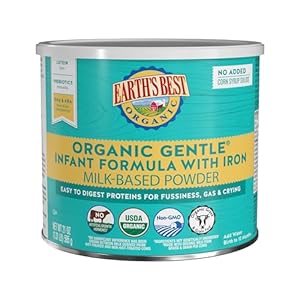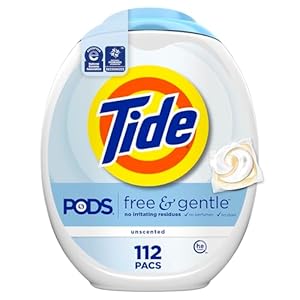
When it comes to introducing solid foods to your baby, choosing the right ones can be a significant step in their health journey. Starting with a selection of nutrient-dense fruits, vegetables, grains, and proteins can lay a strong foundation for their future eating habits. These initial choices not only provide essential vitamins and minerals but also contribute to their overall growth and development. By incorporating a variety of healthy foods into your baby’s diet, you are setting the stage for a lifetime of nutritious eating habits.
Avocado
Avocado is a nutrient-rich fruit that’s excellent for introducing to your baby’s diet. It’s packed with healthy fats, vitamins, and minerals essential for your baby’s growth and development. To prepare avocados for your little one, simply mash a ripe avocado until it reaches a smooth consistency, making it easy for your baby to swallow.
Feeding your baby avocado can help support their brain development due to its high content of monounsaturated fats. These healthy fats are crucial for your baby’s cognitive function and overall brain health. Additionally, avocados are a great source of vitamins C, E, K, and B-6, which are important for boosting your baby’s immune system and promoting healthy skin.
When introducing avocados to your baby, start with small portions to ensure they don’t have any allergies. You can mix mashed avocado with breast milk or formula to create a creamy texture that your baby will love. Remember, always consult with your pediatrician before introducing new foods to your baby’s diet.
Sweet Potato
Rich in vitamins and minerals, sweet potatoes are a nutritious and delicious option for your baby’s diet. These vibrant root vegetables are packed with essential nutrients like vitamin A, vitamin C, and potassium, making them an excellent choice for introducing solid foods to your little one.
To prepare sweet potatoes for your baby, start by washing and peeling the vegetable. Then, dice it into small, manageable pieces before steaming or boiling until tender. You can also bake or roast sweet potatoes for a different texture and flavor.
Once cooked, mash or puree the sweet potatoes to a smooth consistency suitable for your baby’s eating abilities. You can serve them plain or mix them with other fruits or vegetables for added variety.
Sweet potatoes aren’t only easy to digest but also provide a subtle sweetness that babies often enjoy. Introducing sweet potatoes early on can help develop your baby’s palate for different flavors and textures, setting the foundation for a lifetime of healthy eating habits.
Banana
When introducing solid foods to your baby, bananas are a popular choice due to their soft texture and natural sweetness. Bananas are easy to mash, making them a perfect first food for your little one. They’re also rich in essential nutrients like potassium, vitamin C, and fiber, which are important for your baby’s growth and development.
One of the great things about bananas is that they require no cooking or preparation, making them a convenient option for busy parents. Simply peel a ripe banana, mash it up, and it’s ready to serve to your baby. The natural sweetness of bananas is usually well-received by babies and can help introduce them to new flavors in a gentle way.
Bananas are gentle on the stomach and are unlikely to cause allergies, making them a safe choice for early introduction. However, remember that every baby is different, so it’s essential to watch for any signs of intolerance or allergies when introducing bananas or any new food to your baby.
Oatmeal
A nutritious breakfast option for your baby is oatmeal, packed with essential nutrients like fiber and iron. Oatmeal is a great way to introduce solid foods to your little one, as it’s easy to digest and gentle on the stomach. It provides a good source of energy to kickstart your baby’s day and keep them full and satisfied.
When preparing oatmeal for your baby, make sure to use plain oats without added sugars or artificial flavors. You can mix it with breast milk, formula, or water to achieve a smooth consistency that’s suitable for your baby’s developing swallowing skills. Start with a small amount and gradually increase the portion as your baby gets used to the texture.
Oatmeal isn’t only nutritious but also versatile. You can mix in mashed bananas or apples for added flavor and nutrients. Just ensure that the fruits are soft and well-cooked to prevent any choking hazards. Overall, oatmeal is a wholesome and nourishing option to introduce to your baby’s diet.
Blueberries
To continue broadening your baby’s palate and introducing new nutritious options, consider incorporating blueberries into their diet. Blueberries aren’t only delicious but also packed with essential nutrients that can benefit your baby’s health. These small fruits are a great source of antioxidants, which help protect your baby’s cells from damage.
One of the key nutrients found in blueberries is Vitamin C, which is important for your baby’s growth and development. Additionally, blueberries contain fiber, which can aid in digestion and help regulate your baby’s bowel movements.
When introducing blueberries to your baby, it’s important to ensure they’re ripe and soft to reduce the risk of choking. You can mash or puree blueberries to create a smooth texture that’s suitable for your baby to consume. Alternatively, you can mix blueberries with other fruits or yogurt to create a delicious and nutritious snack for your little one. Remember to always consult with your pediatrician before introducing new foods to your baby’s diet.
Carrots
Consider adding carrots to your baby’s diet as they’re rich in essential nutrients that promote healthy growth and development. Carrots are a great source of beta-carotene, which is converted into vitamin A in the body, crucial for your baby’s vision development. The vibrant orange color of carrots signifies the presence of antioxidants that help boost your baby’s immune system.
Introducing carrots to your baby’s diet can also support their digestive health due to the high fiber content. This can aid in preventing constipation and promoting a healthy gut. Carrots are easy to prepare and can be steamed, boiled, or pureed for your baby to enjoy. You can also incorporate carrots into other baby foods to add nutritional value and a hint of sweetness.
To serve carrots to your little one, ensure they’re cooked until soft and cut into manageable pieces to prevent choking hazards. Remember to introduce new foods one at a time to watch for any potential allergies. Enjoy watching your baby explore this nutritious and delicious vegetable!
Greek Yogurt
Indulge your baby in the creamy goodness of Greek yogurt, a nutrient-rich option for their diet that supports healthy growth and development. Greek yogurt is packed with calcium, which is crucial for building strong bones and teeth. It also contains probiotics that promote a healthy gut, aiding in digestion and boosting the immune system. The smooth texture of Greek yogurt makes it an ideal choice for babies who are transitioning to solids, helping them explore new textures while providing essential nutrients.
When choosing Greek yogurt for your little one, opt for plain varieties without added sugars or artificial flavors. You can mix in mashed fruits like bananas or berries to introduce new flavors and increase the nutrient content. Greek yogurt can be served on its own or used as a creamy base for homemade purees. Remember to introduce one new food at a time and watch for any signs of allergies. With its versatile nature and health benefits, Greek yogurt is a delicious and nutritious addition to your baby’s diet.
Peas
Peas, with their vibrant green color and mild flavor, are a nutritious vegetable that can be a great addition to your baby’s diet. Packed with essential nutrients like vitamin K, vitamin C, and fiber, peas are a fantastic choice for introducing solid foods to your little one. Their soft texture makes them easy for babies to eat, and their slightly sweet taste is often appealing to young taste buds.
When preparing peas for your baby, consider steaming or boiling them until they’re soft enough to be easily mashed with a fork. You can also blend them into a smooth puree for younger babies who are just starting solids. Peas can be served alone or mixed with other vegetables or grains to create tasty and nutritious combinations.
Introducing peas early on can help your baby develop a liking for vegetables and set the stage for a lifetime of healthy eating habits. Remember to watch for any signs of allergies and consult with your pediatrician if you have any concerns. Enjoy watching your little one explore this nutritious and delicious vegetable!
Lentils
Lentils, a versatile legume rich in protein and fiber, are an excellent choice for introducing your baby to nutritious plant-based foods. These tiny legumes are easy to digest and packed with essential nutrients that support your baby’s growth and development.
To prepare lentils for your little one, start by rinsing them thoroughly and checking for any small stones or debris. Then, cook the lentils until they’re soft and mashable to avoid any choking hazards.
Introducing lentils to your baby’s diet can help in developing their taste for different textures and flavors. You can mix cooked lentils with pureed vegetables like sweet potatoes or carrots for a delicious and nutritious meal. As your baby grows, lentils can also be combined with other ingredients like rice or quinoa to create more complex dishes.
Keep in mind that lentils may cause gas in some babies, so start with small portions and observe how your baby reacts. With their high nutrient content and versatility, lentils are a fantastic option to kickstart your baby’s culinary journey towards healthy eating habits.
Salmon
Salmon, a nutritious and flavorful fish, is a fantastic option to introduce to your baby’s diet. Rich in omega-3 fatty acids, salmon supports your baby’s brain development and overall growth. The soft texture of cooked salmon makes it easy for your little one to chew and swallow, making it a great choice for babies who are transitioning to solid foods.
To prepare salmon for your baby, simply steam, bake, or poach it until it’s flaky and easily mashed with a fork. Avoid adding any extra salt or seasonings to the fish, as babies’ kidneys aren’t yet ready to process high levels of sodium. Once cooked, you can flake the salmon into small, bite-sized pieces for your baby to enjoy.
When offering salmon to your baby for the first time, watch out for any signs of allergies. Start with a small portion and wait a few days before introducing it again. With its numerous health benefits and delicious taste, salmon is a wonderful addition to your baby’s diet.
Trending Products














